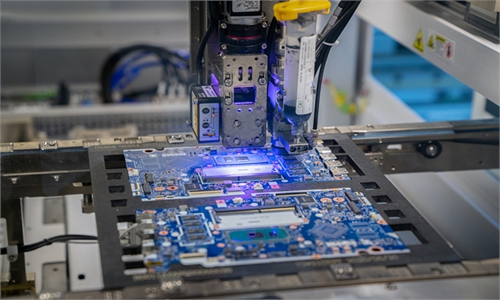China's first silicon carbide vertically integrated industrial chain put into operation

Hunan San'an Semiconductor Base photo: Web
The launch ceremony of China's first and the world's third silicon carbide vertically integrated industrial chain took place in Changsha High-tech Industrial Park in Central China's Hunan Province on Wednesday, media reports said. Industry insiders said it marks a further step in developing the domestic semiconductor sector and ensuring supply amid the US blockade targeting China.
The Hunan San'an Semiconductor Base is capable of producing 30,000 6-inch silicon carbide wafers per month once put into mass production and is expected to achieve annual sales of 12 billion yuan, media reports said.
This launch will be of great significance for China's third-generation semiconductor chip industry, experts said.
The new industrial chain will not only help to alleviate the chip shortage but will also develop the domestic market for chips that are used in battery-powered products, Shen Xiaoliang, deputy general manager of the National Integrated Circuit Innovation Center, told the Global Times on Wednesday.
The chips can be used in multiple fields involving advanced technologies, including communication, server power supply, solar power and smart power grids, while China's huge market and strong policy support for 5G, clean energy, electric vehicles and railways will provide a landing ground for the application of the advanced chips.
China has been speeding up the development of third-generation chips to counter the US sanctions and bans. There has also been a flood of capital into China since the government announced plans to support the industry in its 14th Five-Year Plan (2021-25) in September last year.
The National Third Generation Semiconductor Technology Innovation Center (Nanjing) was officially inaugurated on Monday, with the aim of building an internationally advanced, independent and self-developed third generation semiconductor industry base.
In 2020, the overall output value of China's third-generation semiconductor sector exceeded 710 billion yuan.
China has competitive advantages in terms of raw materials and production equipment for silicon carbide, and does not need to rely on supply from other countries, Shen said, adding that there is strong potential for growth.


